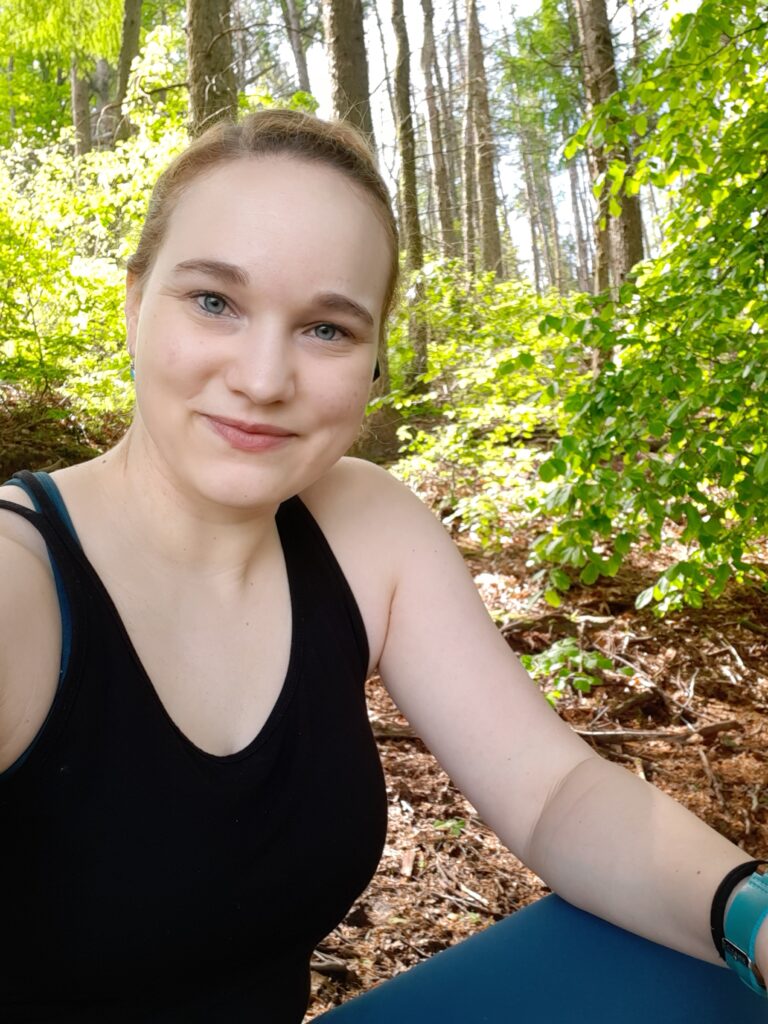Our brain’s objective is to allow us to survive by sticking to what we already know because that’s safe. That’s our comfort zone, the area where we survive. However, it’s only thanks to courage that we step away from the comfort zone and we go towards the area where magic happens. Only there, out there, we start LIVING!
The story of Juniper Kiss is, in my opinion, a story of courage, the story of a person who is not afraid of living, setting an example for many out there who want to do a PhD, notoriously miles away from the comfort zone!
She was one extremely enthusiastic undergraduate student when I met her in 2017 who wanted to start a PhD badly and finally landed a position in Exeter (UK) in 2019 where she worked on the Fusarium wilt disease of bananas in Latin America. Unfortunately, she found herself in a toxic lab environment. When she told me about the type of toxic environment, I felt deeply sympathetic with her, as it was unfortunately a case of sexual harassment. Nevertheless, her courage once more helped her to confront the situation and leave that lab.
I would like to take a moment here to remind the reader that, YES this is something that happens more regularly that you might think. And YES, we need to talk about it because NO, it was not you, although that is what you may think at first. NO, it was not you and you didn’t provoke it. Let’s get over the shaming and be open when this kind of situations happen. Science is beautiful but is made by people, so it contains all our brilliance but also all our bias.
Juniper is now a much happier PhD student at the University of Southampton working on improving food security of Papua New Guinea’s small-scale farmers. She has been recently awarded a grant, the Judith Heath Explored Award (£5,250), to travel to Papua New Guinea and work side by side with local farmers on collecting sweet potatoes, while learning from them and helping them.
In addition to this wonderful trip, she feels she has a lot of freedom to organize her PhD the way she sees most fit with the guidance of her supervisors. Because of the responsibility that comes with it, some might feel intimidated by this approach of the British universities but not Juniper. She explained me that the idea behind is to train good independent researchers already from the PhD. One main task of an independent researcher is to look for grants to continue and sustain his/her research. See where I’m going? The Judith Heath Explored Award is not the only grant she managed to get. In total, she received £30.000 worth of grants since the beginning of her undergraduate studies!

When I asked her to give some advice about PhD life, she came up with a few important “greenlights” that cover the whole track.
First of all, despite all the enthusiasm you may have, take a proper break before starting a PhD. It is important to recharge your batteries to the fullest before embarking in a new adventure.
When you are starting, just remember to be patient. You may think to have it all figured out already, but situations may arise that surprise you. It’s just a learning curve.
When you are deep into your PhD, remember to do what makes you happy. And if at some point you discover that you are not, there is nothing wrong in leaving. Inside tip: complaints are not regarded as symptoms of “I’m not PhD material” because literally every PhD student complains, nevertheless they still love it.
And last but not least, don’t start thinking about what you want to do after your PhD only at the end. It’s a choice that sometimes takes time to be clear. So, take the time to investigate what you are good at and where your passion lies so that you can attract day-by-day the job of your dream.
I want to wish Juniper the very best. She is just one stamp away on the passport to travel to Papua New Guinea. I’m sure she will be living this experience to the fullest and come back with new stories to encourage more people to pursue stepping out of their comfort zone.
